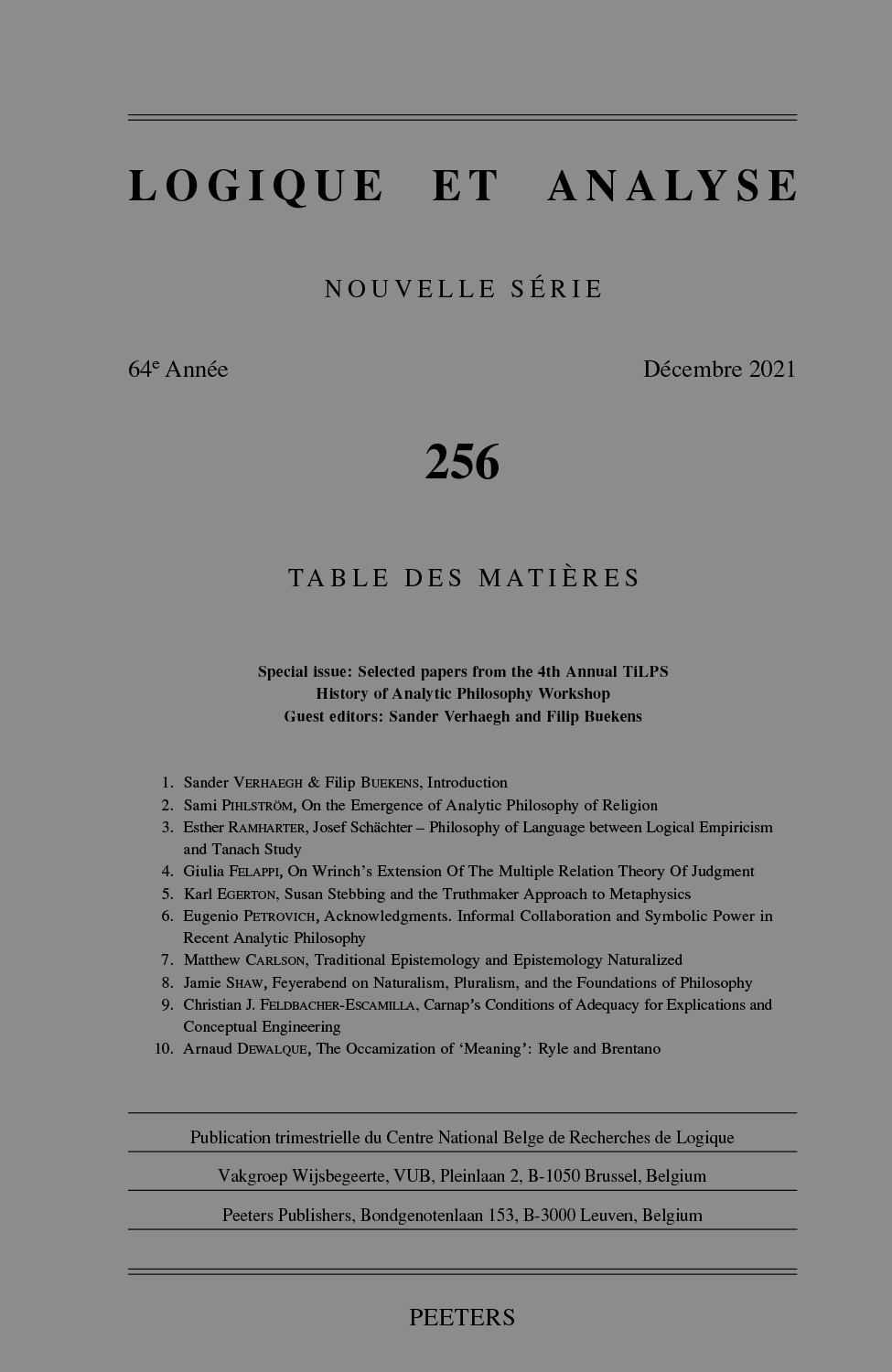next article in this issue  |

Preview first page |
Document Details : Title: (De)motivating Gluts Author(s): ARENHART, Jonas R. Becker , MELO, Ederson Safra Journal: Logique et Analyse Volume: 246 Date: 2019 Pages: 115-134 DOI: 10.2143/LEA.246.0.3286440 Abstract : Semantic paradoxes, like the Liar Paradox, are one of the best-known motivations for the dialetheists’ claim that there are true contradictions. Liar-like arguments arise in natural language and dialetheists argue that the Liar sentence is true and false, i.e., it bears a glut as its truth-value. However, in a recent paper, JC Beall argued that, by parallel reasoning, one should also be led from the resources of natural language to triviality by the use of validity paradoxes (Curry-style paradoxes involving a pre-theoretical notion of validity). Priest answers Beall’s challenge based on a typical move against Curry paradoxes: we avoid triviality by avoiding structural contraction, which is one of the steps in the derivation of triviality. We shall argue that this strategy poses some further difficulties for the dialetheist: i) it is hard for a dialetheist to motivate restriction of structural contraction; ii) structural contraction, if properly motivated, on the other hand, may lead one to avoid the Liar paradox too, and thus, the main motivation for the existence of gluts seems threatened; iii) the asymmetry in the treatment of paradoxes (take the Liar at face value, avoid the Curry) raises difficulties for the desideratum that pre-theoretical concepts should play a prominent role in motivating dialetheism. |
|


